Electronics Battery cells
()Sort by
-

Verbatim 1x24 Mignon AA LR6 49505 Batteries
6.99 €
-
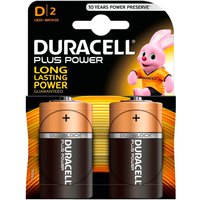
Duracell LR20 Plus Power 2 Units
2.99 €
-
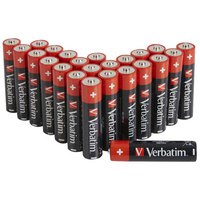
Verbatim 1x24 Micro AAA LR 03 49504 Batteries
6.49 €
-
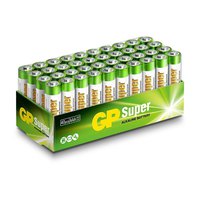
Mvtek Stilo AA Tension 1.5V 15A / LR6 Cylindric Alcaline Battery
0.99 €
-

Varta Professional CR 123 A Batteries
4.99 €
-
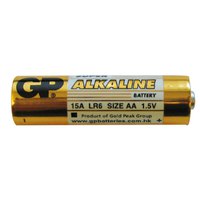
Mvtek Ministilo AAA Tensione 1.5V 24A / LR03 Cylindric Alcaline Battery
0.99 €
-

Duracell LR06 AA Plus Power 4 Units
3.49 €
-
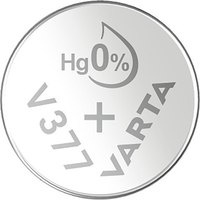
Varta 1 Chron V 377 Batteries
0.99 €
-

Duracell LR14 Plus Power 2 Units
2.99 €
-

Mvtek Ministilo AAA Tensione 1.5V 24A - LR03 Cylindric Alcaline Battery
0.99 €
-
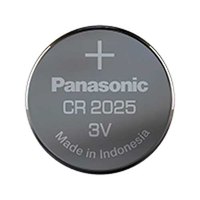
Panasonic CR-2025 Battery Cell
1 €
-

Duracell LR03 AAA Plus Power 4 Units
3.49 €
-
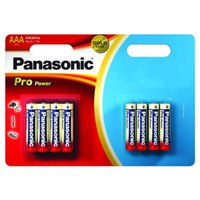
Panasonic LR03 ProPower AAA 6+2 Units
4.49 €
-

Kodak Max Premium Ultra CR2025 Lithium Battery 2 Units
1.99 €
-
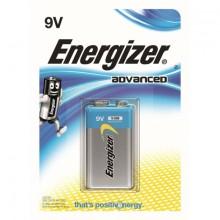
Energizer Eco Advanced 522 Battery Cell
5.99 €
-

Varta Longlife Power Baby C LR14 Batteries
2.49 €
-
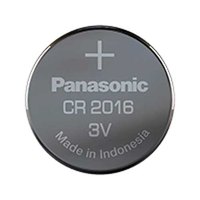
Panasonic CR-2016 Battery Cell
1.49 €
-
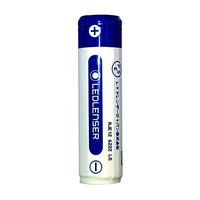
Led Lenser MT10/MH10 Li-Ion 18650 Battery Cell
22.99 €
-

Duracell Plus AA LR06 Alkaline Batteries 4 Units
2.49 €
-

Duracell 1x4 R6 AAA 1300mAh Rechargeable Batteries
7.49 €
-
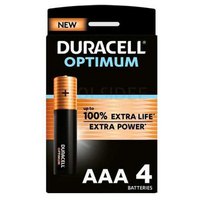
Duracell Optimun AA LR06 Alkaline Batteries 4 Units
3.49 €
-

Tortue BR-435 Lithium Battery
3.49 €
-
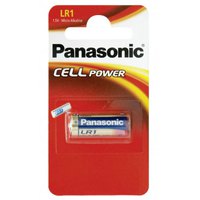
Panasonic LR1 1.5V Battery Cell
1.49 €
-
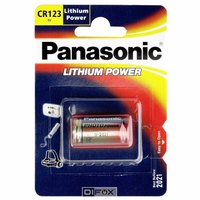
Panasonic Cylindrical Lithium CR12
2.49 €
-
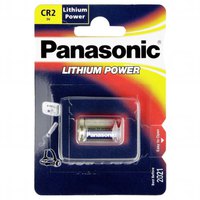
Panasonic Lithium CR2
2.99 €
-
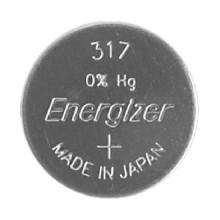
Energizer Button Battery 317
1.99 €
-
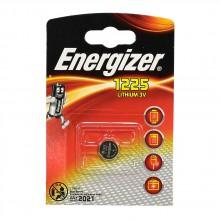
Energizer CR1225 Battery Cell
2.99 €
-
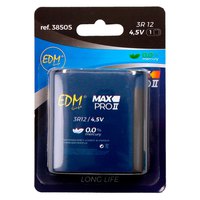
Edm R12 4.5V Stack Flask
1.49 €
-
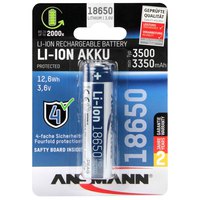
Ansmann 1307-0001 Rechargeable Battery 3500mAh
21.99 €
-

Duracell Pack 2 LR44B2 Coin Cell Battery Pile
1.49 €
-
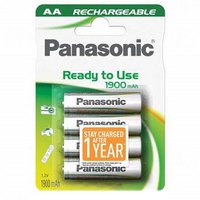
Panasonic AA Rechargeable Evolta 4 Units
11.99 €
-
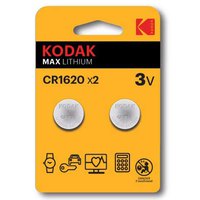
Kodak CR1620 Lithium Battery
1.49 €
-

Duracell Rechargeable AAA Duralock 900 4 Units
9.99 €
-
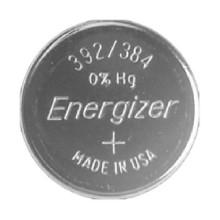
Energizer Button Battery 384/392
1.99 €
-
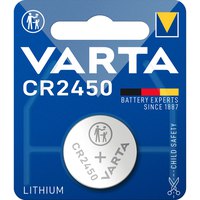
Varta 1 Electronic CR 2450 Batteries
2.49 €
-

Varta 1x4 Longlife Power Micro AAA LR03 Batteries
1.99 €
-

Duracell Lithium 2 Units Batteries
2.49 €
-
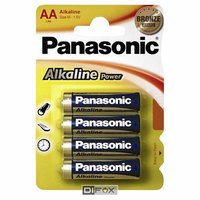
Panasonic Pack 4 LR-06 AA Pile
1.49 €
-
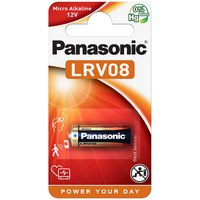
Panasonic LRV-08 12V GP23 Battery Cell
1.99 €
-
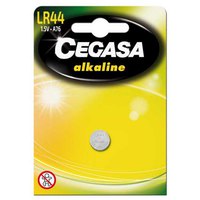
Cegasa Alkaline LR44 5V Batteries
0.99 €
-

Duracell Optimun AAA LR03 Alkaline Batteries 4 Units
3.49 €
-
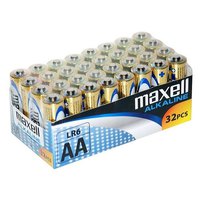
Maxell Box 32 Batteries Lr6 Aa
9.99 €
-
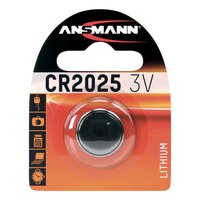
Skuad CR 2450 Batteries
2.49 €
-

Duracell Rechargeable AA Duralock 2400 2 Units
5.99 €
-
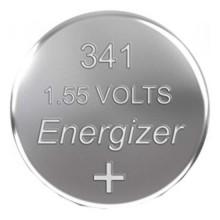
Energizer Button Battery 341
3.49 €
-
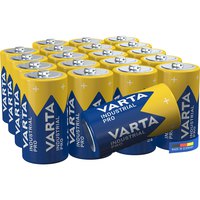
Varta Industrial Pro Batteries L14 C 20 Units
16.99 €
-
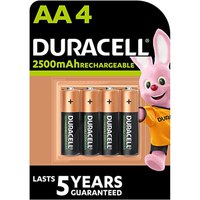
Duracell Rechargeable AA Duralock 2400 4 Units
11.99 €
-
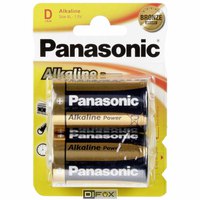
Panasonic LR20 2 Units
2.99 €
-

Cressi Newton/Drake Ring Kit And Battery CR2430
7.49 €
-

Scubapro Battery Kit Pile
23.99 €
-
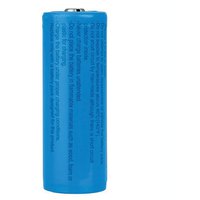
SEAC Battery For R30/R20 Torch
33 €
-
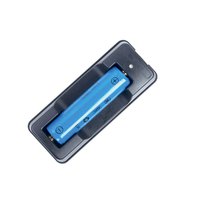
SEAC Battery Charger For R3/R3FX/T5
7.99 €
-

Philips Alkaline 8Lr932/Mn21 12V Batteries
2.06 €
-

Philips Batteries Long 3r12 1.5v (battery Pack)
5.21 €
-

Philips Battery Charger Scb1450nb Aa&aaa + 4 Batteries
24.26 €
-

Philips Alkaline Batteries C/Lr14 1.5V Pack 2
6.91 €
-

Philips 8lr932 Alkaline Batteries
0.99 €
-

Philips Rechargeable Batteries R-6 2100Mah Pack 4
13.35 €
-

Philips CR2016 Batteries
4.62 €
-

Philips Lithium Batteries Cr123 3V Pack 1
6.68 €
-

Philips Rechargeable Batteries R03b4a70 Aaa 800mah Pack 2
7.26 €
-

Philips Alkaline Power Aaa 1.5V Alkaline Batteries 4U Pack
3.07 €
-

Philips Alkaline Power Aa 1.5V Alkaline Batteries 4U Pack
5.79 €
-

Philips Lithium Batteries Cr2025 3V Pack 1
0.99 €
-
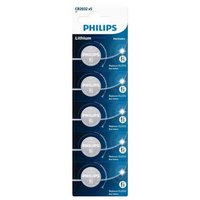
Philips CR2032P5/01B Lithium Battery 5 Units
1.99 €
-
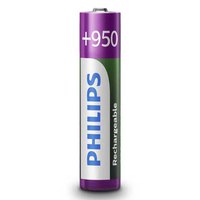
Philips R03B4A95/10 AAA Rechargeable Batteries 4 Units
6.49 €
-
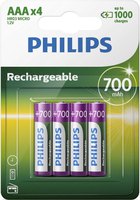
Philips Rechargeable Batteries R03B4A70 Aaa 700Mah Pack4
5.49 €
-
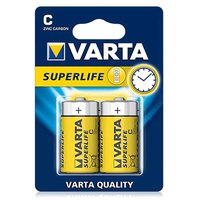
Eltin R14 Alkaline Battery
2.99 €
-
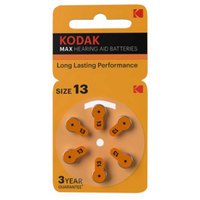
Kodak P13 Alkaline Battery 6 Units
2.49 €
-

Moon 2200mAh Rechargeable Battery
22.99 €
-
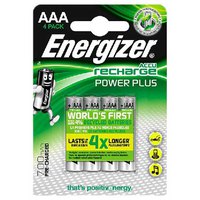
Energizer HR03 700MaH AAA Rechargeable Batteries 4 Units
6.99 €
-
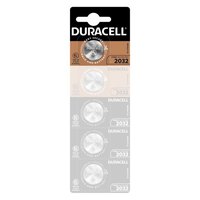
Duracell DL2032 Alkaline Batteries
2.99 €
-
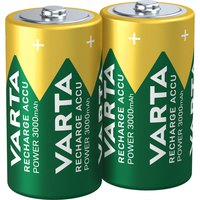
Varta 1x2 Rechargeable C Ready2Use NiMH Baby 3000mAh Batteries
9.49 €
-
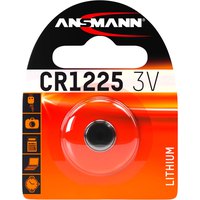
Ansmann CR 1225 Batteries
1.99 €
-
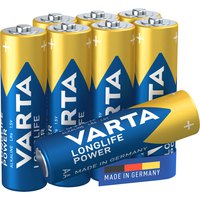
Varta 1x8 Longlife Power Mignon AA LR06 Batteries
3.99 €
-
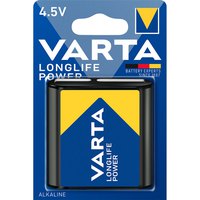
Varta 1 Longlife Power 3 LR 12 4.5V-Block Batteries
3.99 €
-
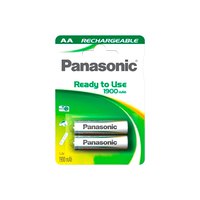
Panasonic 1x2 NiMH Mignon AA 1900mAh Ready To Use Batteries
5.99 €
-
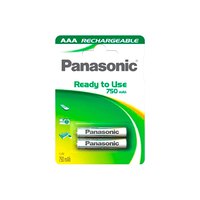
Panasonic 1x2 NiMH Micro AAA 750mAh Ready To Use Batteries
4.99 €
-
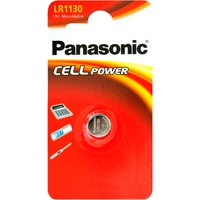
Panasonic 1 LR 1130 Batteries
1.99 €
-

Varta 1 Electronic CR 1216 Batteries
1.99 €
-

Duracell Plus Power C LR14 Alkaline Batteries 2 Units
3.49 €
-
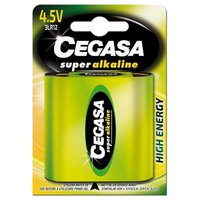
Cegasa Super Alkaline 4.5V Batteries
2.99 €
-
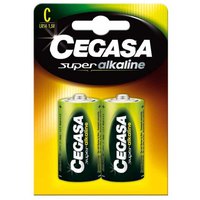
Cegasa 1x2 Super Alkaline C Batteries
2.99 €
-
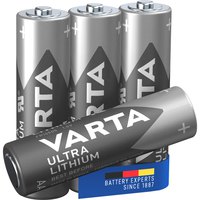
Varta 6106301404 LR06 AA Lithium Batteries 4 Units
7.99 €
-
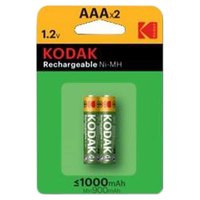
Kodak Rechargeable AAA 1000mAh NiMH 2 Units Batteries
2.99 €
-

Varta V377 Batteries
0.99 €
-

Eneloop 2 Mignon AA 1900mAh Batteries
15.07 €
-

Eneloop 4 Pro Micro AAA 930mAh Batteries
20.52 €
-

Eneloop Pro Mignon AA 2500mAh Batteries
30.98 €
-
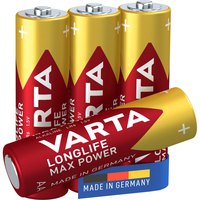
Varta Longlife Max Power Mignon AA LR06 Batteries
2.99 €
-

Gp Batteries Lithium Micro AAA 07024LF-C4 1.5V 4 Units
19.61 €
-

Agfa CR 2450 Batteries
1.49 €
-

Agfa LR 44 AG 13 Batteries
21.31 €
-
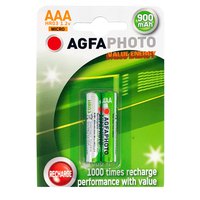
Agfa 2 NiMh Micro AAA 900mAh Batteries
10.44 €
-
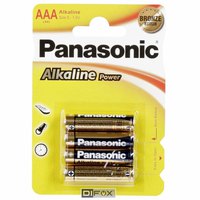
Panasonic Pack 4 LR-03 AAA Pile
2.49 €
-
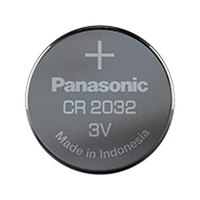
Panasonic CR2032 3V Battery Cell
0.99 €
How to choose cell batteries?
Battery cells are electrochemical devices that store and release electrical energy through chemical reactions. They are the fundamental building blocks of batteries and come in various types, sizes, and chemistries to meet different energy storage needs. You can buy battery cells from Fenix, Cressi, Philips, SEAC, Agfa, and Ansmann.Tips to choose cells batteries:
Capacity refers to the amount of energy that a battery can store. Higher capacity batteries will last longer and require less frequent replacement. Higher capacity generally means longer runtime for your device.
Voltage refers to the amount of electrical energy that a battery can supply. Different devices require different voltages, so it´s important to choose a battery with the correct voltage for your device.
Choosing the right cell batteries, such as AA, AAA, C, or D batteries, can depend on your specific needs and devices. Here are some factors to consider when selecting cell batteries:
Battery Type: Determine the type of battery your device requires. Common types include alkaline, lithium, nickel metal hydride NiMH, and zinc carbon batteries. Make sure to use the type recommended by the device manufacturer.
Battery Size: Select the appropriate size of battery for your device. The most common sizes are AA, AAA, C, and D batteries. Different devices require different sizes, so check your devices user manual or labeling to find out which size you need.
Capacity: Battery capacity is measured in milliampere hours mAh for rechargeable batteries like NiMH, and in ampere hours Ah for larger batteries like car batteries. Higher capacity batteries generally last longer but may cost more.
Voltage: Most standard cell batteries have a voltage of 1.5 volts. However, some rechargeable batteries, like NiMH, have a slightly lower voltage of 1.2 volts. Make sure the voltage matches your devices requirements.
Longevity: Consider the expected lifespan of the battery. Alkaline batteries have a long shelf life and are suitable for low drain devices, while lithium batteries offer longer life and perform well in extreme temperatures. Rechargeable batteries are cost effective in the long run and are better for high drain devices.
Use and Application: Think about the purpose of the batteries. If you´re using them in low drain devices like TV remotes, regular alkaline batteries may suffice. For high drain devices like digital cameras or flashlights, consider higher capacity batteries or lithium batteries. For frequently used devices, rechargeable batteries can save you money over time.
Storage: Consider the storage conditions for your batteries. Some batteries have a longer shelf life and better performance in extreme temperatures. If you plan to store batteries for an extended period or in varying environmental conditions, opt for appropriate types.

























